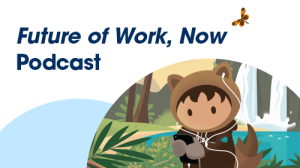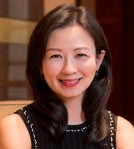When this story was first published in 2020, Maya was Vice-President of Twitter in APAC. Her role changed to a global role in 2021 and her title was updated in this blog.
In the beginning of the pandemic, people came to Twitter for information.
What came next, according to Maya Hari, now Global Vice President of Global Strategy and Operations, was conversation and connection.
“People have found themselves embracing technology very easily, very freely, and very deeply, and we have seen two interesting trends from that,” said Maya. “First, our audience has grown 29% year-on-year globally and [growth in] Asia is a big part of that. Partly due to lockdowns, people also found themselves with more time so hobbies became a large part of the conversation.”
Popular topics in the past few months have ranged from gaming and shopping to baking and K-pop. There have also been many examples of people using the platform for good. Maya shares one heartwarming example with our podcast host Asha Popatlal. She also offers a crash course on what makes a good tweet and discusses how use of the platform has evolved this year.
Here are key takeaways from their conversation on the topic of business as a platform for change:
What is Twitter doing for good? Tell me a story that sticks out
First of all there’s the platform itself. There are stories arising from this everyday because of the public nature of the platform and the way it connects people rapidly. One recent story is that of a 12 year old boy who was stuck on the streets of Delhi during the pandemic. He was separated from his parents who were in another town and he could not get back to them. Someone tweeted his story and within a few days, the word got out….good samaritans kept him fed and people raised enough funds to send him back to his parents.
Everytime I hear something like that it warms my heart, but it is not just one story a day that we hear. This is quite normal for us. You can imagine that as an employee, it feels tremendous to [be part of] a business with this kind of purpose and ability.
What does diversity and inclusion mean for you and Twitter?
I define inclusion as the moment where we all feel like we truly belong and we are able to contribute and interact by bringing our whole selves unashamedly to work. It sounds utopian, but in the last few years we have made great strides as a company. The reason we do it is that we believe as a platform that every person in the world should have the ability to express themselves on Twitter. If we want all of these voices to be heard, we owe it to all of our users to build a platform and business that allows for that.
What are you doing to increase the representation of women at Twitter?
I am not the first female leader we’ve had in Asia-Pacific. My predecessor was a woman so there is a lot to say about the history of women leaders in the business. If I look at Twitter’s country leaders in Asia-Pacific, there is a very even mix of men and women. I feel very privileged to be able to say that and it is a tremendous credit to Twitter for having systemically focused on this, with things like equal and extended parental leave, to hiring practices that are consciously focused on bringing enough women into the pipeline.
It is good to have that even balance. Men have wonderful ideas too, but they are made even better when we work together as men and women.
How do you use Twitter for good when it comes to the environment?
We have seen the conversation around the environment really skyrocket over the last two to three years. We have also seen tweets from consumers overtake corporate tweets in some ways. It is moving beyond corporate social responsibility (CSR) to people saying that [protecting the environment] is a good thing to do. So the platform itself is a big catalyst to bring about that type of activism on the environment, which is very important.
As a company, we have focused on the spaces we own. This includes efforts to make sure we have green buildings and that we use renewable energy. We are also focused on reducing plastic consumption in the offices and running sustainable events.
Technology companies have it somewhat easier compared to brick-and-mortar companies or consumer goods companies. The amount of disruption and change required in their businesses goes beyond the things that we’re doing because they also have to think about things like product packaging and their supply chains. It really needs to be a collective effort between governments, enterprises, and consumers to bring about that change.
Listen to the full episode to learn more about how Twitter is using its platform for good. Maya also provides more insight into current conversations on Twitter and reflects on her very first tweet.
Access the podcast on demand at our podcasts page, Spotify, and iTunes. You can also listen over at the Singapore Community Radio Twitch page, Facebook page, and website.
Sign up here for our Salesforce Asia Blog newsletter to get monthly updates on the podcast series and the latest Salesforce stories.

























